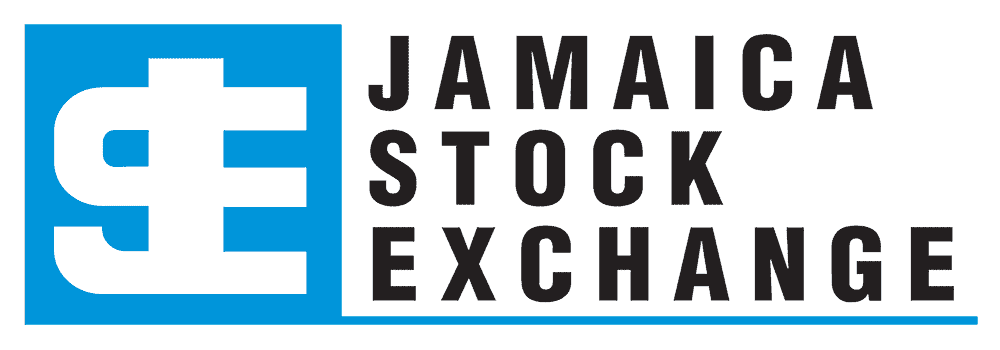|
The Most Honourable Edward Philip George Seaga, O.N. P.C., LL.D. (Hon.), former Prime Minister, 1980-89, Distinguished Fellow of the University of the West Indies, was born on May 28, 1930, in Boston, U.S.A., to the late Philip George Seaga and Erna (nee Maxwell). He was educated at Wolmer’s Boys’ School in Jamaica and graduated from Harvard University in 1952 with a Bachelor of Arts degree in the Social Sciences. Political Career
Mr. Seaga’s political career began in 1959 when Sir Alexander Bustamante, founder of the Jamaica Labour Party (JLP), nominated him to serve in the Upper House of the Jamaican Parliament, the Legislative Council (later the Senate). His appointment at age 29 made him the youngest member ever appointed to the Legislative Council. In April, 1962, Mr. Seaga was elected Member of Parliament for West Kingston a waterfront area which is historically the oldest settlement in Kingston for poor, working class residents a great many of whom are unemployed. Employment is largely petty trading with some skilled craftsmen. He held that seat for 43 consecutive years making him the longest serving Member of Parliament in the history of Jamaica and the English speaking Caribbean. He is the only person elected as Member of Parliament for West Kingston for more than one term having won 10 consecutive terms. Immediately after winning his seat in 1962, Mr. Seaga was appointed to the Cabinet as Minister of Development and Welfare with responsibility for all areas of planning and culture. Following the 1967 General Elections he was appointed Minister of Finance and Planning and in 1974 he became Leader of the JLP and the Parliamentary Opposition until the 1980 General Election. Edward P.G. Seaga became Prime Minister of Jamaica following the General Election of October 30, 1980, when the Jamaica Labour Party won a landslide victory over the incumbent People’s National Party (PNP) with the largest mandate ever. The mandate of Mr. Seaga and the Jamaica Labour Party was renewed in the uncontested 1983 General Elections. He remained Prime Minister until February, 1989. Mr. Seaga was also Minister of Finance and Planning, and his portfolio included responsibilities for Information and Culture. As one of the founding fathers of the Jamaican Constitution in 1961, Mr. Seaga has spear-headed far-reaching constitutional reforms since then, initiating a re-write of the human rights section of the Constitution to provide for a Charter of Fundamental Rights and Freedoms, creation of a post of Public Defender and curtailment of some of the wide powers of the executive arm of Government to provide a better balance of power between the executive and the parliament in the Jamaican system of governance. |
CONTRIBUTIONS TO NATIONAL DEVELOPMENT
Economic Development
Mr. Seaga Jamaicanized the ownership of Financial Institutions in Jamaica over a two year period as a result of which the Life Insurance Industry with one exception, became fully Jamaican owned and all but one Bank became jointly owned with Jamaicans. Previously all these financial institutions were fully foreign owned.
Mr. Seaga has established, encouraged, promoted or introduced several institutions, which have contributed to the modernization and development of the financial sector. These include the Jamaica Stock Exchange (1969), Jamaica Unit Trust (1970), the Students’ Revolving Loan Fund for Higher Education (1970), Jamaica Mortgage Bank (1972), National Development Bank (1981), the Agricultural Credit Bank (1981), the Ex-Im Bank (1986), and the Self-Start Fund (1984) to provide loans to micro-businesses.
He promoted the modernization of commercial agriculture by introducing high
technology which stimulated agricultural enterprise in new crops. Tissue culture was introduced to rescue the dying banana industry and drip irrigation revolutionized the cultivation of vegetables. In 1988, he launched a programme to plant 1 million trees. He put unused and under-used publicly owned lands to work.
The highly successful Jamaica Promotion Limited (JAMPRO) was created by him in 1981 as a one-stop investment organisation to promote local and overseas investment in Jamaica. The investment programme created a dynamic export garment sector, and expanded the tourism sector to become the highest export earner in the economy. An information technology centre was introduced with AT & T which attracted many IT enterprises and created thousands of jobs.
These and other promotions enable the Jamaican economy to respond with record job creation and reduction of unemployment.
Under his administration, in the 1980’s, the income and corporate tax system was comprehensively reformed and modernised to make it more equitable and efficient. The rate was substantially reduced to a flat 33% from a high of 60%, for both individuals and corporate entities. Mr. Seaga also introduced modern computerized technology into the administration and organisation of revenue collection in which each taxpayer would be assigned a Taxpayer Registration Number (TRN). He overhauled the indirect tax system by combining a number of taxes into a single General Consumption Tax (GCT).
In 1969, he converted Jamaica’s currency to the decimal system, using dollars and cents instead of pounds, shillings and pence.
As Minister of Finance, Mr. Seaga represented Jamaica as a Governor of the International Monetary Fund, the World Bank, the Inter-American Development Bank, and the Caribbean Development Bank.
SOCIAL DEVELOPMENT
Urban and Rural Development and the Environment
To reduce costly petroleum usage, Mr. Seaga promoted the use of alternative energy (solar, wind, biomass) with the United Nations Environmental Programme. His administration prepared the first 20 year physical development plan for Jamaica laying out areas for national parks and preservation of Jamaica’s endemic botanical species, one of the most diverse in the world.
In the 1960’s Mr. Seaga transformed the country’s worst slum – “Back-o-Wall” – into a modern, low-income residential community, re-named Tivoli Gardens. Tivoli Gardens has a full range of cultural and social amenities for all age groups, and remains a model of successful urban community development. The development pioneered the use of high-rise buildings as a solution to re-housing the densely populated inner slums which succeeded in changing the face of the West Kingston area.
Mr. Seaga established the Urban Development Corporation (UDC) in 1968. Through the UDC the derelict waterfronts of Kingston, Ocho Rios and Montego Bay were developed into major resort, residential, port, commercial and office complexes. Among other accomplishments, the UDC spearheaded the development of Negril as a resort area. Notably some 50,000 acres of choice land were acquired by the UDC at Mr. Seaga’s initiative to establish a land bank for further development. This formed the basis for planned developments such as Hellshire, Bloody Bay (Negril) Seville and Auchindown (Westmoreland).
Perhaps the largest of all urban development projects will be the 30,000 acre Hellshire area on the outskirts of the over-populated capital city of Kingston. Mr. Seaga initiated the purchase of this prized area, together with nearby Caymanas lands, for the creation of a new city, to be established on planning themes and land use designations laid down by the UDC.
In 1985, Mr. Seaga established the Metropolitan Parks and Markets (MPM) as a subsidiary of the UDC to be responsible for public cleansing, beautification and the maintenance of the parks and markets in the city of Kingston and other specified urban areas. MPM literally transformed this aspect of city management by delivering an effective and cost-efficient service.
*Human Resource Development
One of Mr. Seaga’s most satisfying areas of endeavour has been the creation of several outstanding social programmes especially for young people. Among them was: the Human Employment and Resource Training Programme (HEART), which began in 1983 and provides job-related training for school leavers and drop-outs on a wide scale throughout Jamaica. This has had a most positive impact on the expansion of skills and job capabilities of young people. L.E.A.P. (Learning for Earning Activity Programme) was established by Mr. Seaga in 1986 to provide training for street children. In 1988 he successfully raised funds from the European Union LOME facility to build residential halls for the University of the West Indies, University of Technology and the Cultural Training Centre (now the Edna Manley School of Art).
In 1985, he launched Solidarity, a programme to finance and stimulate entrepreneurship among young people by giving them small, collateral free, loans and guidance in establishing their own micro-businesses with supervision by a volunteer from the business community.
Food Aid Programme
The Food Aid Programme was established by Mr. Seaga in 1983 to assist the poorest groups in the society by supplementing their food supply. The most significant beneficiaries under this programme were primary school children, who receive a high protein lunch daily. In addition, pregnant and nursing mothers, children under three, the indigent, disabled and elderly received food stamps to assist them to meet dietary needs.
Golden Age Homes
The Golden Age movement was launched by Mr. Seaga in the 1960s as a new concept in modern community care for the aged. The first Golden Age Home was built in 1985, to provide a modern, planned home for the aged. A second centre, based in an inner city community, followed in 1988.
CULTURAL DEVELOPMENT
Mr. Seaga has often said that his first love is culture, and his monumental achievements in this field stand as a testament to his passion.
He created and established the Jamaica Festival, (in which institutions, groups and individuals compete annually in the literary, performing, plastic and graphic arts, as well as culinary skills, leading up to the Independence celebrations). The Jamaica Festival has become a showcase of Jamaican talent and the cradle of traditional folk culture. He also introduced National Heritage Week annually to commemorate the National Heroes of Jamaica and promote the nation
al heritage of the country.
In the 1960’s while he was Minister of Development and Welfare, Mr. Seaga gave the emerging Jamaican popular music (Ska) its first exposure to the international scene by promoting overseas tours of Jamaican artistes. Together with his own pioneering work in the recording of Jamaican music, he laid the foundations for the international emergence of Reggae, now popular worldwide. He established a craft development company – Things Jamaican – in 1961 to nurture the development of Jamaica’s handicraft, made Devon House, a Great House of outstanding architectural merit, a showcase of our heritage in craft and completed plans for the re-development of Port Royal, Seville and Spanish Town renowned heritage sites, as archaeological parks of international renown.
He introduced television to Jamaica in 1962 and colour television in 1982. In 1988, he divested several government owned radio stations to private interests and the church.
Mr. Seaga conceived and designed the Cultural Training Centre for all the Arts (drama, music, painting/sculpture and dance), and donated his own extensive collection of folk music of Jamaica to the School of Music. In 1985, he converted a small schools Broadcasting Unit into a well established audio-visual Community Production and Training Centre (CPTC) to produce local documentaries for Television at home and abroad.
Mr. Seaga influenced the careers of several internationally acclaimed Jamaican popular artistes and played a major role in introducing the work of the renowned Jamaican intuitive artist Mallaci `Kapo’ Reynolds. He also enlightened Jamaicans with the results of his extensive research work in Jamaican traditional culture by revealing the existence of Kumina an indigenous religious cult from Angola in Africa in which the original African language was still spoken.
He also inaugurated the respected Jamaica Journal, in 1967, published quarterly by the Institute of Jamaica, which is devoted to promoting the arts, natural history, sociology and science through publications.
Mr. Seaga played a principal part in the return of the body of Marcus Garvey to Jamaica and in establishing the nations highest order, that of National Hero, of which Garvey, leader of the black consciousness movement internationally at the time, was the first recipient.
INTERNATIONAL INITIATIVES
In 1970, Mr. Seaga promoted the concept of an international “culture bank” leading to the establishment of the International Fund for the Promotion of Culture (IFPC) by UNESCO.
In 1981, he played a leading role in the establishment of the Caribbean Basin Initiative (CBI), conceived as a “Marshall Plan” for the Caribbean and promoted the concept of an international human resource facility (or “Manpower Bank”), later adopted by the United Nations Development Programme (UNDP) as the Short Term Advisory Service (STAS) to provide low-cost, short-term expertise from the international private sector for developing countries. In recognition of his work in advancing environmental solutions, Mr. Seaga was one of four world leaders to address the United Nations special conference on energy in Kenya in 1982. The United Nations Environmental Programme (UNEP) bestowed on him the Leadership Award in 1987.
He was also in the forefront of the international campaign to intensify and expand economic sanctions against South Africa as a means of bringing apartheid to an end. Mr. Seaga addressed the General Assembly of the United Nations in 1985 and made his memorable call for an intensified attack on the South African rand. In October 1987, at the Commonwealth Heads of Government Meeting in Vancouver, he demonstrated statistically that sanctions were working against South Africa and successfully pressed for continued commonwealth support.
Mr. Seaga founded the Caribbean Democrat Union, an affiliate of the International Democrat Union, the international body of Christian Democratic parties. He was President of the CDU and a Vice-President of the IDU until he retired from these positions.
Singular Achievement
The victory of the Jamaica Labour Party in 1980 was an event of great international interest which drew much attention worldwide. The central issue was whether Jamaica would continue on the socialist path introduced in 1972 with considerable social and unprecedented damage to the economy, or return to the well established principles of the market economy which made Jamaica the fastest growing developing country in the world in the 1960s. A product of the socialist direction was the militancy it introduced which spilled over into the streets in island wide civil conflict. Mr. Seaga with great personal courage and tactical political leadership led his party in the 1980 General Election to the largest margin of victory in Jamaican history. In reversing the socialist campaign, he changed the course of Jamaican history.
|
Honours and Awards
In 1981, Mr. Seaga was appointed by Queen Elizabeth II as a member of Her Majesty’s Privy Council. In 2002, the Order of the Nation, the second highest honour awarded by the Government of Jamaica was bestowed on him. In 2005, the honorary title of Distinguished Fellow for life was conferred on Mr. Seaga by the University of the West Indies. He was also recently installed as a Fellow of the Institute of Jamaica, the venerable institution of Arts and Sciences. Mr. Seaga has also been honoured by several countries: – Republic of Venezuela – Grand Collar de Libertador (1981) – Republic of Venezuela – Gold Mercury International Award (1981) – Republic of Korea – Grand Gwangwa Medal, Order of Diplomatic Service (1981) – Federal Republic of Germany – Grand Cross of the Order of Merit (1982) – Mexico – Order of the Aztec Eagle (1987) He is the recipient of several prestigious international awards: · Gleaner Honour Awards: Man of the Year, 1980, 1981 · Avenue of the Americas Association, N.Y. – Gold Key Award (1981) · Pan American Development Foundation Inter-American Man of the Year Development Award (1983) · Dr. Martin Luther King Humanitarian Award (1984) · United Nations Environment Programme – the Environmental Leadership Award (1987) |
Mr. Seaga is credited with having built more institutions and initiated more far reaching policies in the growth and development of Jamaica than any other political leader.
Honorary Degrees
· University of Miami, LL.D. (1981)
· Tampa University, LL.D. (1982)
· University of South Carolina, LL.D. (1983)
· Boston University, LL.D. (1983)
· University of Hartford, LL.D. (1987)
Publications
“Parent Teacher Relationships”, published by the Institute of Social and Economic
Research, University of the West Indies, 1954.
“Faith Healing in Jamaica” – International Parapsychology, 1955.
“Revival Spirit Cults” (Jamaica Journal), published by the Institute of Jamaica.
“Folk Music of Jamaica” (album of music recorded by Ethnic Folkways Library), 1978.
“The Origins of Jamaica Popular Music (published on CD from lecture at UWI), 2002.
Lectures
|
Date |
Event |
Topic |
Publication by |
|
February 17, 2005 |
Keynote Address Second Annual Graduate Students Conference |
“The Potential for the UWI to be recognized as the specialist research university in the Caribbean” |
|
|
March 2, 2005 |
Guest Speaker, UTECH Marketing Seminar |
High Tech Marketing: Competitive Strategies for Marketing “Brand Jamaica” |
|
|
March 18, 2005 |
*Guest Speaker Sir Arthur Lewis 6th Annual Conference |
“Processes of Regional Governance: the Agony of the 15” |
SALI S ES UWI |
|
April 14, 2005 |
Keynote Address 3rd A Z Preston Mem. Lecture |
“UWI’s Role in Caribbean Development in the 21st Century” |
|
|
April 19, 2005 |
*Guest Speaker, Professor Carolyn Cooper’s book launch |
“Sound Clash: Jamaican Dancehall Culture At Large” |
|
|
May 12, 2005 |
*Inaugural Lecture |
“The Folk Roots of Jamaican Cultural Identity” |
UWI |
|
August 26, 2005 |
*Keynote Address Mona Academic Conference |
“Tourism As The Driver Of Change In The Jamaican Economy” |
UWI |
|
August 29, 2005 |
Ministry of Education TORCH Magazine |
“The challenge of an upside-down (education) system” |
|
|
September 29, 2005 |
Keynote Address Jamaica Council for Adult Education |
“Revolutionizing Adult Education through the Learning City” |
|
|
October 19, 2005 |
Keynote Address UNESCO’s Carib Reg Conf to launch the Decade of Sustainable Development |
“It takes a child to raise a village” |
|
|
October 21, 2005 |
Guest Speaker, University of Rochester Multicultural Celebrations |
“The Dissenting Mind and Religious Bigotry” |
|
|
November 22, 2005 |
*Keynote Address ScientificResearch Council Annual Science & Tech. Conference |
“A Vision of Energy for the Twenty First Century” |
Scientific Research Council Jamaica |
|
November 24, 2005 |
*Guest Speaker Planning Institute of Jamaica 50th Anniversary Celebrations |
“Institutional Improvements for Development Planning” |
Planning Institute of Jamaica |
|
December 1, 2005 |
Guest Speaker at book launch – Professor Bernard Headley |
“Deported: Entry and Exit Findings of Jamaicans Returned From the US Between 1997 and 2003” |
|
|
January 19, 2006 |
Guest Speaker Jamaica Chamber of Commerce Trade Seminar |
“The CSM: Gain or loss for Jamaica?” |
|
|
January 26, 2006 |
*Speaker Seminar UWI Res Day 2006 |
Integration vs. Cooperation: CARICOM needs re-thinking |
UWI |
|
March 2, 2006 |
Guest Speaker Launching Ceremony “Ettu, Mento, Revival, Kumina |
The origins of Jamaican Folk Music |
|
|
March 23 |
Opening Address JN Fund Managers Pension Seminar |
Boosting Pensions |
|
|
April 12, 2006 |
Keynote Speaker Institute of Chartered Accountants forum |
Pursuing a new growth strategy |
Planning |
|
Thursday, April 20, 2006 |
Norman Manley Law School Students Association |
The CSM: Beneficial Path or Wayward Journey? |
Regional Trade |
|
Monday, May 1, 2006 |
Induction Fellow Institute of Jamaica |
A life on a cultural mission |
Culture |
|
July 12, 2006 |
Insurance Association |
Savings is where it all begins |
|
|
Sunday Dec.3,2006 |
Guest Speaker Jamaica National Biennial Exhibition National Gallery of Jamaica |
Broadening the Base In Art |
Culture |
Personal
Mr. Seaga who
was born in the Evangeline Boothe Memorial Salvation Army Hospital in Boston while his parents were in the U.S.A., enjoyed dual nationality but he made the momentous decision in 1959 to formally relinquish his American citizenship so that he could serve “one flag” alone.
On August 22, 1965, he married Marie Elizabeth “Mitsy” Constantine, Miss Jamaica 1965. They have two sons, Christopher, Andrew and a daughter Anabella. This marriage was dissolved in 1995.
On June 14, 1996, he married Carla Frances Vendryes MPA, who holds a Masters degree in Public Administration. Mrs. Seaga’s special areas of interest are sociological research, the development of Jamaican handicraft. She was responsible for the development of the Solidarity project to assist the poorest of the poor in small entrepreneurial enterprises and has initiated an organization to assist victims of violence. They have a daughter Gabrielle, born September 16, 2002. Mr. Seaga has three other children by a previous marriage.
Mr. Seaga is deeply involved in cultural activities, particularly folk music and all aspects of things Jamaican. A keen gardener and amateur landscaper, Mr. Seaga has translated his love for plants and flowers into the beautiful Enchanted Garden Resort, which has become a unique attraction in Jamaica.
As an athlete he played on several teams at Wolmers and Harvard: field hockey, cricket, football, rifle, tennis and swimming (diving). He continues to be an avid sportsman: member of various hunting clubs, the Jamaica Skeet Club and President of the Tivoli Gardens Football Club, Basketball and Netball Clubs.
On January 20, 2005, Mr. Seaga retired from the position of Leader of the Jamaica Labour Party which he held for 30 years and as a Member of Parliament after serving for 43 years in the House of Representatives (and two years in the Senate), the longest period of continuous service of any elected representative in the English Speaking Caribbean.
With his recent appointment as a Distinguished Fellow by the University of the West Indies, he is now engaged in research and the writing of books which will draw on his immense storehouse of experience.





